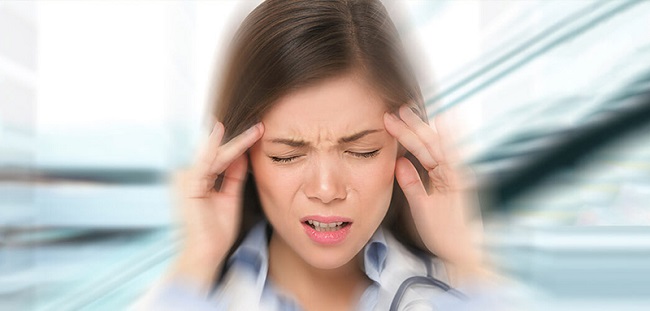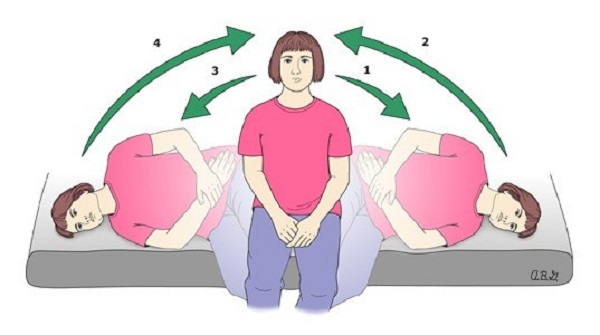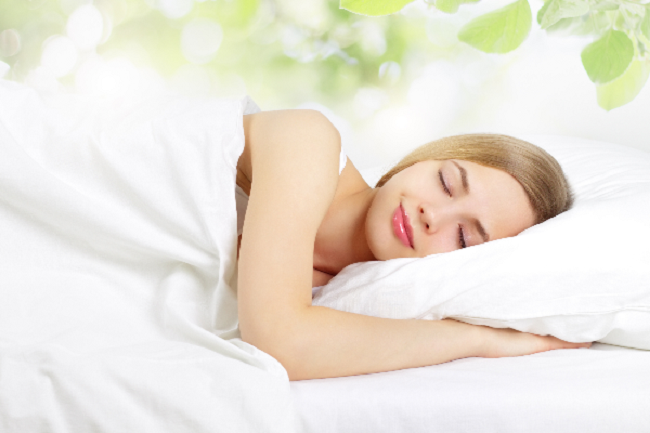7 HOME REMEDIES FOR VERTIGO
What Should You Do To Make Vertigo Go Away
Vertigo is a sensation of feeling off balance. If you have these dizzy spells, you might feel like you are spinning or that the world around you is spinning. Vertigo is a symptom of an underlying condition, not a diagnosis in itself. Some types of vertigo will only happen once, and some types will continue to recur until the underlying condition is found.
Other symptoms that may accompany vertigo include: Feeling nauseated, vomiting, abnormal or jerking eye movements (nystagmus), headache, sweating, ringing in the ears or hearing loss. Symptoms can last a few minutes to a few hours or more and may come and go.

If you are experiencing vertigo at home, there are several home remedies that you can use to treat it.
Gingko Biloba (Ginkgo Biloba Extract)
Ginkgo biloba has been studied for its effects on vertigo and found to be as effective as the leading prescription medication to treat vertigo. A multicenter clinical trial was performed to compare the efficacy and safety of Ginkgo biloba extract EGb 761 and betahistine at recommended doses in patients with vertigo. One hundred and sixty patients (mean age 58 years) were randomly assigned to double-blind treatment with EGb 761 (240 mg per day) or betahistine (32 mg per day) for 12 weeks. Clinical global impression was rated “very much improved” or “much improved” in 79% of patients treated with EGb 761 and in 70% receiving betahistine. This study provides evidence that Ginkgo biloba extract EGb 761 is as effective as the world’s most frequently prescribed antivertiginous agent, betahistine, in the treatment of unspecified vertiginous syndromes.
Gingko biloba extract can use in liquid or capsule form. Taking 240 milligrams of ginkgo biloba each day should lessen your vertigo symptoms and make you feel more on-balance.

*EGb 761 [Ginkgo biloba extract EGb 761, Rökan, Tanakan, Tebonin] is a standardised extract of Ginkgo biloba leaves
Brandt-Daroff Exercise
This exercise is most commonly recommended for people with vertigo to do at home, because it is simple to do it unsupervised. You shouldn’t perform the Brandt-Daroff exercise unless you are in a safe place and won’t be driving for a while, because it might provoke increased dizziness for a short period of time.
Start by sitting on a flat surface, with your legs dangling as they would from a chair.
Turn your head as far as you can to the left side, then lay your head and torso down on your right side. Your legs should not move. Stay here for at least 30 seconds.
Sit up and turn your head back to the center position.
Repeat the exercise on the opposite side by turning your head as far as you can to the right side, then laying down on your left side.

You can do this exercise in a set of 5 repetitions and repeat it as often as 3 times a day, twice a week.
Stress Management
Some conditions that cause vertigo, including Meniere’s disease, can be triggered by stress. Developing coping strategies to navigate stressful circumstances could decrease your episodes of vertigo. Practicing meditation and deep-breathing techniques are a good place to start. Long-term stress isn’t something you can simply breathe through, and often the causes of stress aren’t things that you can cut out of your life. Simply being aware of what is causing you stress might cut down on your vertigo symptoms.
Yoga And Tai Chi
Yoga and tai chi are known to reduce stress while increasing flexibility and balance. Physical therapy performed in an outpatient setting trains your brain to compensate for the cause of your vertigo, and exercise you do at home can mimic this effect. Try simple yoga poses, such as Child’s Pose and Corpse Pose, when you’re feeling dizzy. Be cautious about anything that involves sudden bending forward, as that could make your symptoms temporarily feel stronger.

Adequate Amount Of Sleep
Feelings of vertigo can be triggered by sleep deprivation. If you’re experiencing vertigo for the first time, it might be a result of stress or lack of sleep. If you can stop what you’re doing and take a short nap, you may find that your feelings of vertigo have resolved themselves.

Vitamin D
A study suggests that a lack of vitamin D can worsen symptoms for people that have benign paroxysmal positional vertigo (BPPV), the most common cause of vertigo. A glass of fortified milk or orange juice, canned tuna, and even egg yolks will all give your levels of vitamin D a boost. Have your doctor check your vitamin D levels so you know if you need more in your diet or if you need a supplement.

Avoiding Alcohol
Beyond the dizziness you feel while drinking, alcohol can actually change the composition of the fluid in your inner ear, according to the Vestibular Disorders Association. Alcohol also dehydrates you. These things can affect your balance even when you’re sober. Cutting back on alcohol consumption, or even stopping completely, might help your vertigo symptoms.

OUTLOOK
Vertigo is not a diagnosis, but it’s a symptom of an underlying condition if it keeps occurring. Treating vertigo at home might work as a short-term solution. But if you continue to experience frequent vertigo, it’s important to find out the cause. Your general practitioner might be able to diagnose you, or you may be referred to an ear, nose, and throat specialist or neurologist for further evaluation.
Medically reviewed by Debra Rose Wilson, Ph.D., MSN, R.N., IBCLC, AHN-BC, CHT
Written by Kathryn Watson
SOURCES
https://www.healthline.com/health/home-remedies-for-vertigo#when-to-see-your-doctor
https://www.webmd.com/brain/vertigo-symptoms-causes-treatment
Brandt-Daroff exercises. (2012).
swbh.nhs.uk/wp-content/uploads/2012/07/Brandt-Daroff-Exercises-ML3094.pdf
Büki B, et al. (2013). Vitamin D deficiency and benign paroxysmal positioning vertigo. DOI:
doi.org/10.1016/j.mehy.2012.11.029
Causes of dizziness. (n.d.).
vestibular.org/about-vestibular-disorders/causes-dizziness
Dietary considerations: Does diet really matter? (n.d.)
vestibular.org/understanding-vestibular-disorders/treatment/vestibular-diet
Initial evaluation of vertigo. (2006).
aafp.org/afp/2006/0115/p244.html
Lempert T, et al. (2009). Vertigo as a symptom of migraine. DOI:
doi.org/10.1111/j.1749-6632.2009.03852.x
Li AW, et al. (2012). The effects of yoga on anxiety and stress.
altmedrev.com/publications/17/1/21.pdf
Liu Y, et al. (2016). Epley and Semont maneuvers for posterior canal benign paroxysmal positional vertigo: A network meta-analysis. DOI:
doi.org/10.1002/lary.25688
Meniere’s disease: lifestyle and home remedies.
mayoclinic.org/diseases-conditions/menieres-disease/basics/lifestyle-home-remedies/con-20028251
Tai chi: A gentle way to fight stress.
mayoclinic.org/healthy-lifestyle/stress-management/in-depth/tai-chi/art-20045184
Positional vertigo. (n.d.)
umm.edu/programs/hearing/services/positional-vertigo
Positional vertigo: Can the Epley maneuver help against sudden attacks of dizziness? (2014).
ncbi.nlm.nih.gov/pubmedhealth/PMH0072679/
Rubinstein J. (n.d.). Vertigo: Frequently asked questions.
uihc.org/health-library/vertigo-frequently-asked-questions
Sokolova L, et al. (2014). Treatment of vertigo: A randomized, double-blind trial comparing efficacy and safety of Ginkgo biloba Extract EGb 761 and betahistine. DOI:
doi.org/10.1155/2014/682439
Toupet M, et al. (2012). Effect of repositioning maneuver type and postmaneuver restrictions on vertigo and dizziness in benign positional paroxysmal vertigo. DOI:
doi.org/10.1100/2012/162123
Treating vertigo with yoga. (n.d.)
artofliving.org/us-en/yoga/health-and-wellness/treating-vertigo-yoga
- 1. Energize and focus your new year with Ginseng and Ginkgo Biloba
- 2. CAN PEOPLE WITH HYPERTENSION USE CORDYCEPS?
- 3. COMMON HABITS CAUSES CEREBRAL ISCHEMIA
- 4. TIPS FOR STAYING HEALTHY IN THE AUTUMN
- 5. THE EXPERT’S SHARING: THE KEY TO START A NEW DAY FULL OF ENERGY
- 6. GINSENG – “SPECIAL” HERBAL MEDICINE FOR FATIGUE PEOPLE

